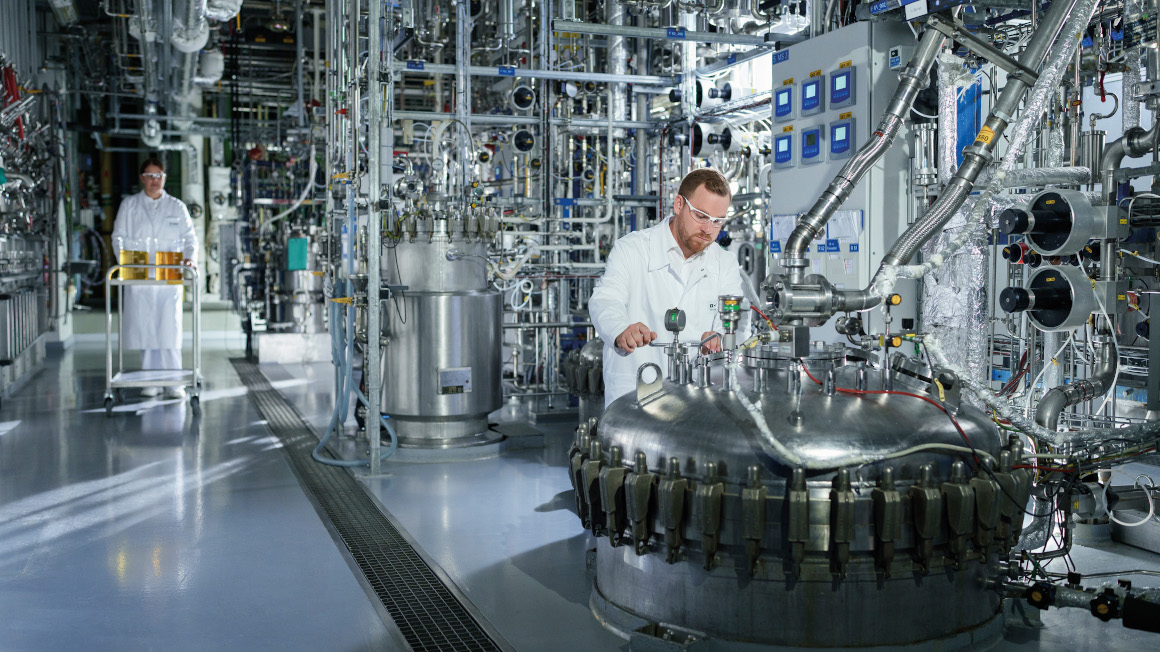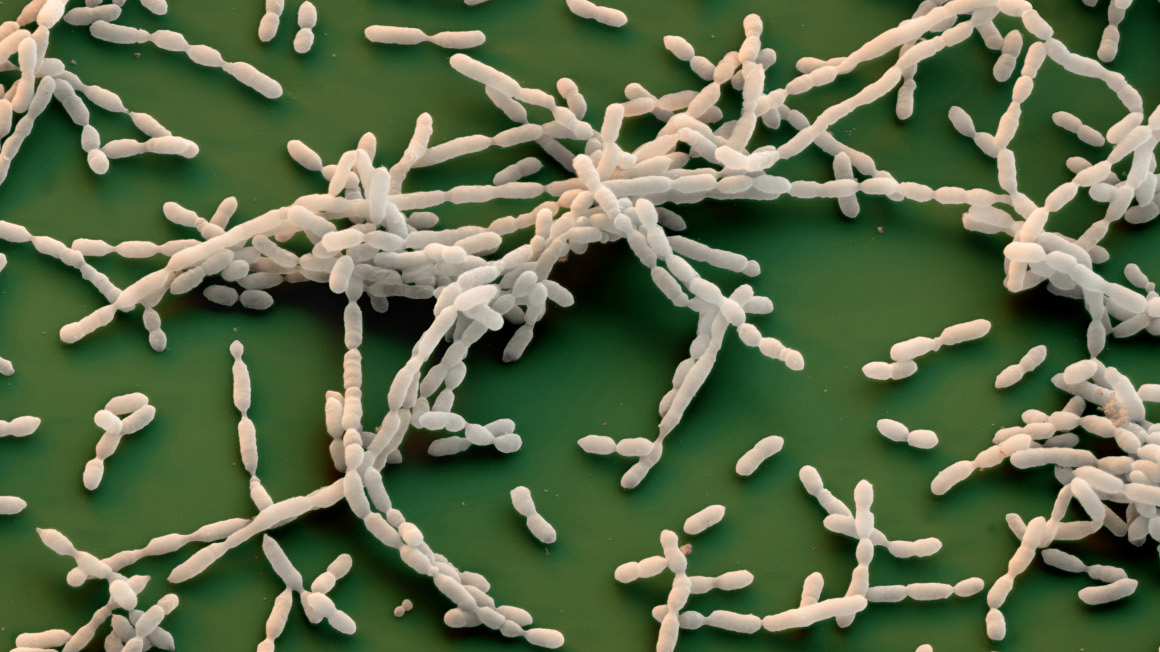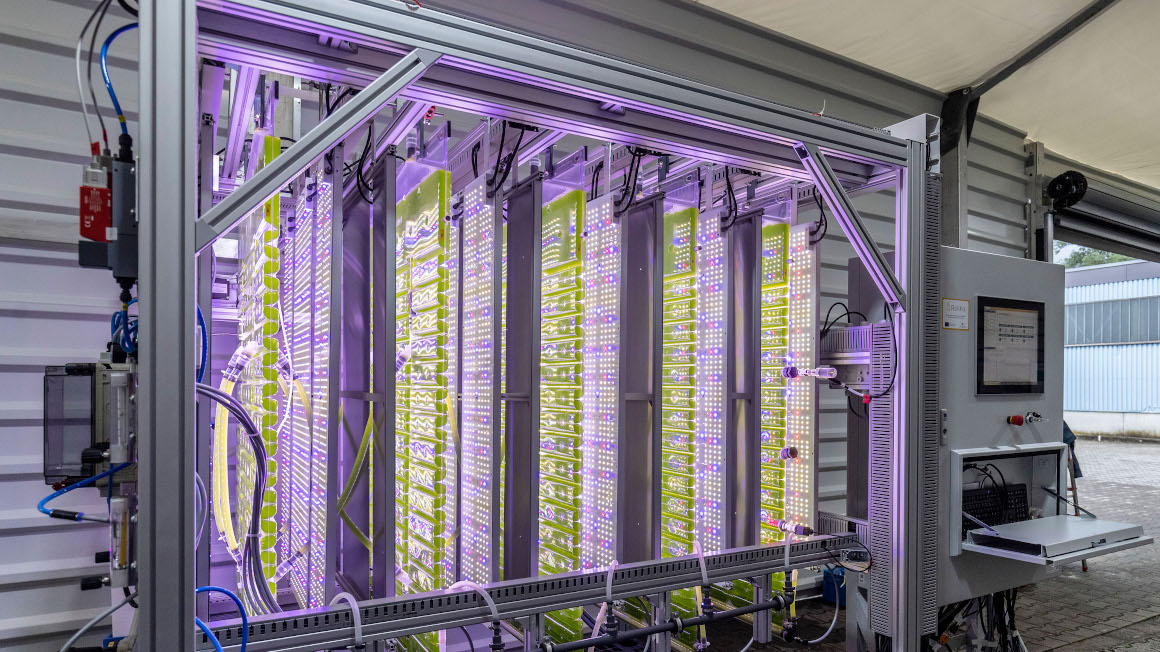Turning CO2 from industrial emissions into a platform chemical
Using bacteria from bovine rumen, researchers led by the chemical company BASF want to produce the platform chemical fumaric acid from industrial emissions from chemical production.

Utilising carbon dioxide (CO2) as an alternative source of carbon is a promising approach to making industrial chemical production processes more climate-friendly and sustainable. In the FUMBIO project, researchers from the Centre for Synthetic Microbiology (SYNMIKRO) at the University of Marburg and the universities in Saarbrücken and Kaiserslautern-Landau, led by the chemical company BASF, want to develop such a sustainable production process for the manufacture of the platform chemical fumaric acid. The project is being funded by the Federal Ministry of Education and Research (BMBF) as part of the ‘Climate-neutral products through biotechnology - CO2BioTech’ programme from 2024 to 2026 with a total of 2.6 million euros.
Using bacteria to produce chemicals from industrial waste gases
Fumaric acid is an intermediate that occurs in large quantities in many metabolic processes in plants, animals and humans and is used industrially in the production of food, animal feed, pharmaceuticals and cosmetics. For the sustainable production of this important platform chemical, the project team is relying on the help of the bacterium Basfia succiniciproducens, which was originally isolated from the rumen of cattle and has already proven its worth in other industrial fermentation processes.
With the help of this bacterium, the chemical intermediate fumaric acid is to be produced by fermentation from renewable sugars and carbon dioxide, which comes from waste gas streams from chemical production plants. ‘Carbon dioxide is an important raw material for us in the chemical industry,’ explains Navé. ‘If we recycle the CO2 from industrial waste gases, this will help us to reduce emissions of the greenhouse gas and achieve our climate targets by 2050,’ says Barbara Navé, project manager at FUMBIO and responsible for evaluating and coordinating new projects in white biotechnology at BASF.

Researchers are modifying the metabolism of the bacterium
In the project, researchers at the University of Marburg will investigate the extent to which the bacterium's metabolism can be modified to produce as much fumaric acid as possible. ‘We are using methods of metabolic engineering and synthetic biology to reprogramme the bacterium so that it produces fumaric acid,’ explains Tamara Hoffmann from the SYNMIKRO research group in Marburg. Researchers at Saarland University in Saarbrücken will analyse the bacterial strains and their metabolism.
BASF optimises fermentation process
As part of the project, BASF is focussing on biotechnological fermentation: together with researchers from the Rhineland-Palatinate Technical University of Kaiserslautern-Landau, the fumaric acid will be further processed into climate-friendly products using enzymes in a biocatalytic process. ‘Together with our cooperation partners, we are taking a closer look at the fermentation process. The aim is to optimise it so that the bacteria produce as much fumarate as possible from renewable raw materials such as sugar and carbon dioxide,’ says Barbara Navé.
Sustainable products with a low carbon footprint
According to BASF, the bio-based fumarate can be used to manufacture products such as food and feed additives, starting materials for medicines or building blocks for polymers and detergents and cleaning agents with a significantly lower carbon footprint. One aim of the project is to manufacture products whose carbon footprint is significantly lower, perhaps even negative, compared to conventional petroleum-based production. In addition, the project partners want to establish an economic value chain – from sustainable starting materials to the intermediate product fumaric acid and biocatalytic conversion into bio-based end products.
bb


